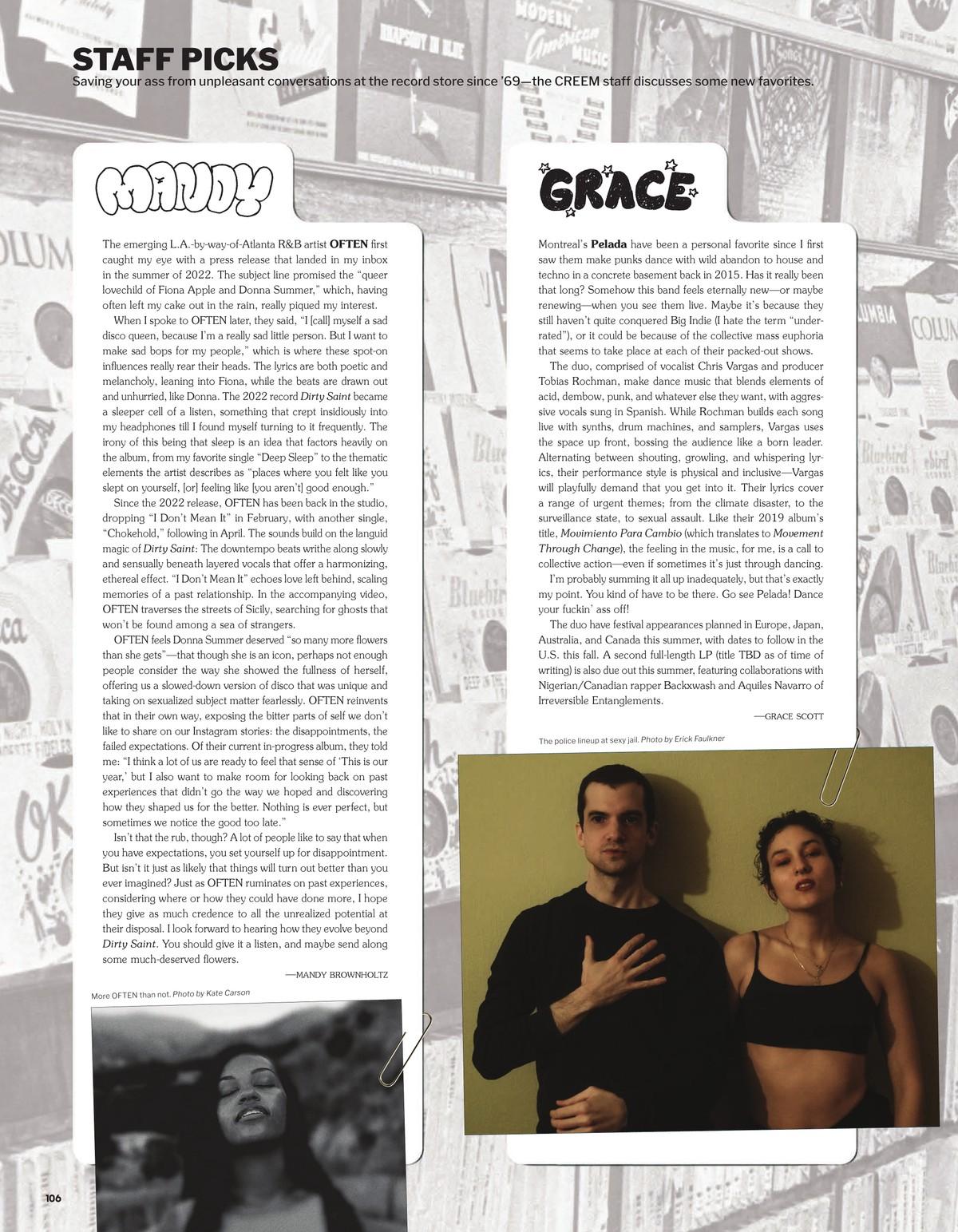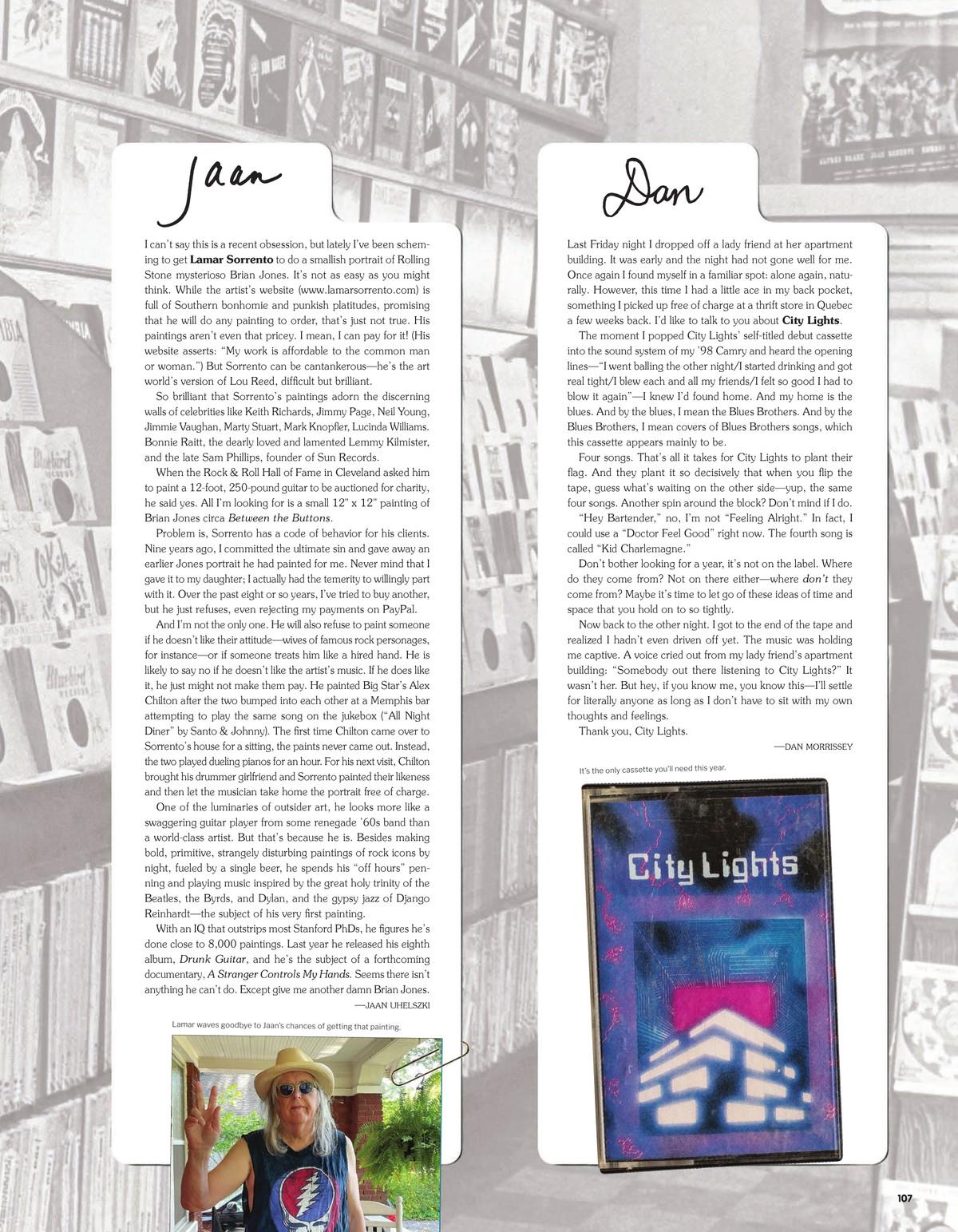STAFF PICKS
Saving your ass from unpleasant conversations at the record store since '69—the CREEM staff discusses some new favorites.
June 1, 2023


Loading...

Saving your ass from unpleasant conversations at the record store since '69—the CREEM staff discusses some new favorites.


Loading...